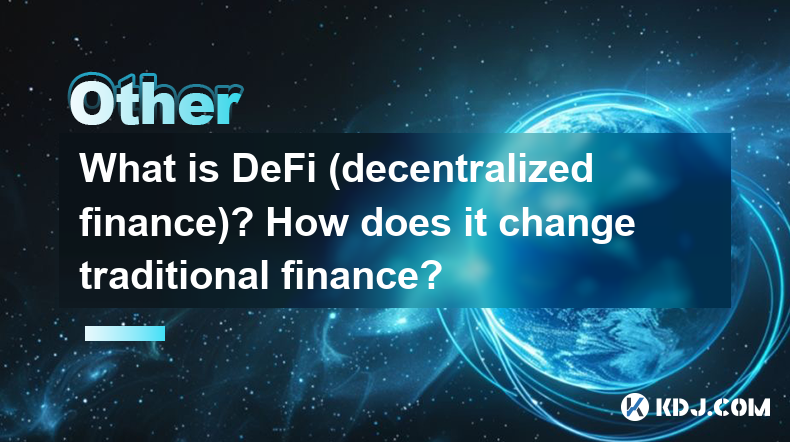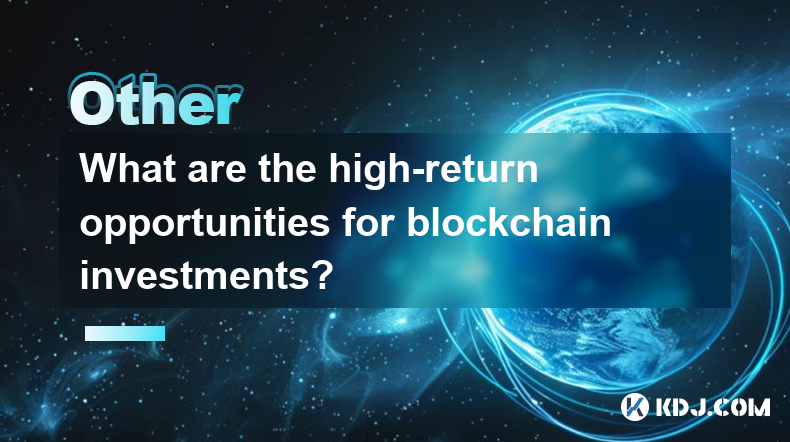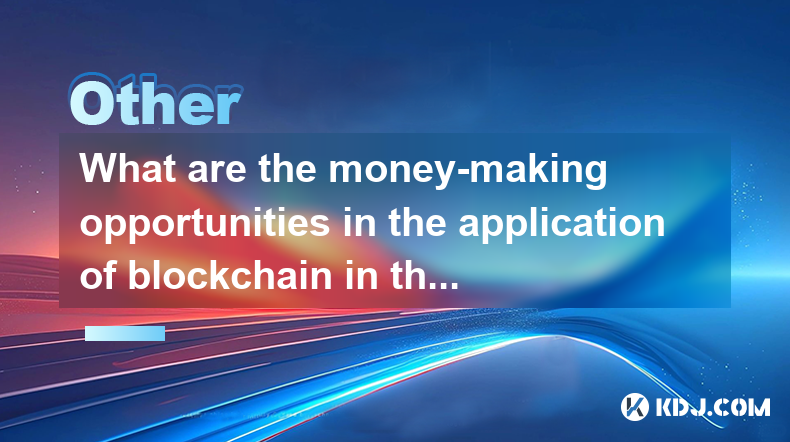-
 Bitcoin
Bitcoin $83,384.0103
-0.52% -
 Ethereum
Ethereum $1,808.8880
-0.27% -
 Tether USDt
Tether USDt $0.9996
-0.01% -
 XRP
XRP $2.1285
0.17% -
 BNB
BNB $590.6650
-1.02% -
 Solana
Solana $119.8001
-1.16% -
 USDC
USDC $1.0000
-0.01% -
 Dogecoin
Dogecoin $0.1672
-1.52% -
 Cardano
Cardano $0.6450
-2.14% -
 TRON
TRON $0.2358
-0.73% -
 UNUS SED LEO
UNUS SED LEO $9.1542
-0.44% -
 Chainlink
Chainlink $12.7548
-1.04% -
 Toncoin
Toncoin $3.2310
-2.48% -
 Stellar
Stellar $0.2517
-2.57% -
 Avalanche
Avalanche $17.3882
-4.28% -
 Shiba Inu
Shiba Inu $0.0...01223
-0.63% -
 Sui
Sui $2.1802
-2.73% -
 Hedera
Hedera $0.1601
-2.08% -
 Litecoin
Litecoin $82.2437
-2.91% -
 Polkadot
Polkadot $3.9303
-2.19% -
 MANTRA
MANTRA $6.2192
-1.01% -
 Bitcoin Cash
Bitcoin Cash $295.8200
-1.72% -
 Dai
Dai $1.0000
0.00% -
 Bitget Token
Bitget Token $4.4500
-1.78% -
 Ethena USDe
Ethena USDe $0.9991
0.00% -
 Pi
Pi $0.6522
50.32% -
 Monero
Monero $214.4466
-1.61% -
 Hyperliquid
Hyperliquid $11.5830
-3.12% -
 Uniswap
Uniswap $5.8275
-1.00% -
 OKB
OKB $54.4412
7.17%
What is DeFi (decentralized finance)? How does it change traditional finance?
DeFi uses blockchain to decentralize finance, cutting out intermediaries and potentially lowering costs, but it also carries risks like smart contract vulnerabilities and regulatory uncertainty, posing a challenge to traditional finance.
Mar 16, 2025 at 08:11 pm

Key Points:
- DeFi leverages blockchain technology to recreate traditional financial services in a decentralized manner.
- This decentralization eliminates intermediaries, potentially increasing efficiency and reducing costs.
- DeFi offers a range of services mirroring traditional finance, including lending, borrowing, trading, and insurance.
- However, DeFi also presents significant risks, including smart contract vulnerabilities and regulatory uncertainty.
- The impact of DeFi on traditional finance is still evolving, but it presents a potential challenge to the established system.
What is DeFi (Decentralized Finance)? How does it change traditional finance?
Decentralized Finance (DeFi) is a rapidly evolving sector within the cryptocurrency ecosystem. It aims to rebuild traditional financial systems using blockchain technology and smart contracts. Unlike traditional finance, which relies heavily on centralized intermediaries like banks and brokers, DeFi operates on a peer-to-peer basis, removing the need for these middlemen. This decentralized nature is the core principle driving its innovation.
The cornerstone of DeFi is the use of smart contracts. These self-executing contracts, coded onto the blockchain, automate financial transactions. This automation eliminates the need for trust in intermediaries, as the terms of the agreement are enforced by the code itself. This offers the potential for faster, cheaper, and more transparent transactions.
DeFi protocols offer a variety of services mirroring traditional finance. Lending and borrowing platforms allow users to lend or borrow cryptocurrencies without the need for a bank. Decentralized exchanges (DEXs) provide a platform for trading cryptocurrencies without the involvement of a centralized exchange. Other DeFi applications include decentralized stablecoins, yield farming, and prediction markets.
One of the key differences between DeFi and traditional finance lies in accessibility. Traditional financial systems often have high barriers to entry, requiring extensive KYC/AML procedures and significant capital. DeFi, in theory, offers more open access, allowing anyone with an internet connection and cryptocurrency to participate.
However, DeFi is not without its challenges. Smart contract vulnerabilities are a significant risk. Bugs in the code can be exploited by malicious actors, leading to significant financial losses. The regulatory landscape surrounding DeFi is also uncertain, with governments worldwide grappling with how to regulate this new technology.
How DeFi Changes Traditional Finance: A Detailed Look
DeFi's decentralized nature presents a fundamental challenge to the established financial system. Traditional finance relies on a hierarchical structure, with centralized institutions controlling access and flow of funds. DeFi aims to disrupt this model by distributing control across a network of participants.
- Lending and Borrowing: Traditional lending requires intermediaries like banks to assess creditworthiness and manage loans. DeFi platforms use collateralized lending, allowing users to borrow cryptocurrencies by locking up other crypto assets as collateral. This eliminates the need for credit checks.
- Trading: Traditional exchanges act as central custodians of user funds, creating a single point of failure. DEXs, on the other hand, allow peer-to-peer trading without a central authority. This enhances security and reduces the risk of centralized hacks.
- Payments: Traditional payment systems often involve high fees and slow processing times. DeFi offers faster and cheaper cross-border payments using cryptocurrencies and decentralized payment networks.
- Insurance: Traditional insurance companies assess risk and manage payouts. DeFi offers decentralized insurance protocols that automatically pay out claims based on pre-defined smart contract conditions.
Risks Associated with DeFi
While DeFi offers numerous advantages, it also carries substantial risks. Understanding these risks is crucial before engaging with DeFi applications.
- Smart Contract Risks: Bugs or vulnerabilities in smart contracts can be exploited by hackers, leading to significant losses of funds. Thorough audits and security reviews are essential but not foolproof.
- Volatility: Cryptocurrency prices are highly volatile, exposing DeFi users to significant price fluctuations. This volatility can impact the value of collateral and borrowed funds.
- Regulatory Uncertainty: The regulatory landscape surrounding DeFi is still evolving. Changes in regulations can impact the legality and operation of DeFi protocols.
- Lack of Consumer Protection: Unlike traditional finance, DeFi generally lacks robust consumer protection mechanisms. Users are responsible for their own due diligence and risk management.
Step-by-Step Guide to Understanding DeFi's Impact
Let's break down DeFi's impact on traditional finance step-by-step:
- Step 1: Decentralization: DeFi removes intermediaries, empowering users to directly interact with financial services.
- Step 2: Transparency: Blockchain technology provides a transparent and auditable record of all transactions.
- Step 3: Automation: Smart contracts automate processes, increasing efficiency and reducing human error.
- Step 4: Accessibility: DeFi aims to provide greater access to financial services for underserved populations.
- Step 5: Innovation: DeFi fosters innovation by allowing for the creation of new financial products and services.
Common Questions and Answers:
Q: Is DeFi safe? A: DeFi carries significant risks, including smart contract vulnerabilities and market volatility. Thorough research and risk management are crucial.
Q: How does DeFi compare to traditional finance? A: DeFi is decentralized, transparent, and potentially more efficient, but also riskier and less regulated than traditional finance.
Q: What are the benefits of DeFi? A: Benefits include increased efficiency, lower costs, greater accessibility, and potentially higher yields.
Q: What are the risks of DeFi? A: Risks include smart contract vulnerabilities, market volatility, regulatory uncertainty, and lack of consumer protection.
Q: Is DeFi regulated? A: The regulatory landscape for DeFi is still evolving and varies across jurisdictions. Many DeFi protocols operate in a largely unregulated space.
Q: How can I get started with DeFi? A: Start by researching different DeFi protocols, understanding the risks, and only investing what you can afford to lose. Always prioritize security best practices.
Disclaimer:info@kdj.com
The information provided is not trading advice. kdj.com does not assume any responsibility for any investments made based on the information provided in this article. Cryptocurrencies are highly volatile and it is highly recommended that you invest with caution after thorough research!
If you believe that the content used on this website infringes your copyright, please contact us immediately (info@kdj.com) and we will delete it promptly.
- SEC Commissioner Hester Peirce Lays Out a Bold Seven-Point Plan to Urge Congress to Slash Red Tape
- 2025-04-06 13:20:12
- Toncoin (TON) Whales Have Stepped Up Their Activity Level
- 2025-04-06 13:20:12
- Bitcoin.com News Sponsors the Bitcoin Takeover Podcast
- 2025-04-06 13:15:12
- Bitcoin [BTC] is nearing a critical threshold, with its price now close to tightly packed short liquidation levels.
- 2025-04-06 13:15:12
- Toncoin (TON) Price Prediction: Is $7.00 Within Reach as the Ecosystem Expands?
- 2025-04-06 13:10:12
- Binance Discontinues Spot Trading Pairs with Tether's USDt in the European Economic Area (EEA) to Comply with the Markets in Crypto-Assets Regulation (MiCA)
- 2025-04-06 13:10:12
Related knowledge

Is the ranking of Chinese blockchain apps real and reliable?
Apr 04,2025 at 09:01pm
The ranking of Chinese blockchain apps has become a topic of interest for many in the cryptocurrency community, as it provides insights into the popularity and adoption of blockchain technology within China. However, the reliability and authenticity of these rankings are often questioned. This article aims to delve into the factors that influence these ...

What are the future development trends of blockchain game development?
Apr 03,2025 at 05:00am
Blockchain technology has revolutionized various industries, and gaming is no exception. As we look to the future, several trends are set to shape the development of blockchain games. These trends not only promise to enhance the gaming experience but also to integrate blockchain technology more seamlessly into the gaming ecosystem. Let's explore these t...

What are the high-return opportunities for blockchain investments?
Apr 05,2025 at 02:35pm
Blockchain technology has revolutionized the financial world, offering numerous high-return investment opportunities. These opportunities span various sectors within the cryptocurrency ecosystem, including cryptocurrencies, decentralized finance (DeFi), non-fungible tokens (NFTs), and blockchain startups. Each of these areas presents unique risks and re...

What are the maintenance costs of blockchain system development?
Apr 03,2025 at 06:07pm
The maintenance costs of blockchain system development are multifaceted and depend on various factors. These costs can include technical maintenance, security updates, infrastructure expenses, and personnel costs. Understanding these elements is crucial for anyone planning to develop or maintain a blockchain system. Technical MaintenanceTechnical mainte...

What are the money-making models of blockchain games?
Apr 04,2025 at 02:00pm
Blockchain games have emerged as a revolutionary way for players to earn real money while enjoying their favorite pastime. These games leverage the power of blockchain technology to create unique money-making models that benefit both the players and the developers. In this article, we will explore the various money-making models of blockchain games and ...

What are the money-making opportunities in the application of blockchain in the field of Internet of Things?
Apr 05,2025 at 10:35pm
The integration of blockchain technology with the Internet of Things (IoT) presents numerous money-making opportunities. Blockchain, with its decentralized and secure nature, can revolutionize how IoT devices interact, manage data, and conduct transactions. This article will explore various avenues where entrepreneurs, developers, and investors can capi...

Is the ranking of Chinese blockchain apps real and reliable?
Apr 04,2025 at 09:01pm
The ranking of Chinese blockchain apps has become a topic of interest for many in the cryptocurrency community, as it provides insights into the popularity and adoption of blockchain technology within China. However, the reliability and authenticity of these rankings are often questioned. This article aims to delve into the factors that influence these ...

What are the future development trends of blockchain game development?
Apr 03,2025 at 05:00am
Blockchain technology has revolutionized various industries, and gaming is no exception. As we look to the future, several trends are set to shape the development of blockchain games. These trends not only promise to enhance the gaming experience but also to integrate blockchain technology more seamlessly into the gaming ecosystem. Let's explore these t...

What are the high-return opportunities for blockchain investments?
Apr 05,2025 at 02:35pm
Blockchain technology has revolutionized the financial world, offering numerous high-return investment opportunities. These opportunities span various sectors within the cryptocurrency ecosystem, including cryptocurrencies, decentralized finance (DeFi), non-fungible tokens (NFTs), and blockchain startups. Each of these areas presents unique risks and re...

What are the maintenance costs of blockchain system development?
Apr 03,2025 at 06:07pm
The maintenance costs of blockchain system development are multifaceted and depend on various factors. These costs can include technical maintenance, security updates, infrastructure expenses, and personnel costs. Understanding these elements is crucial for anyone planning to develop or maintain a blockchain system. Technical MaintenanceTechnical mainte...

What are the money-making models of blockchain games?
Apr 04,2025 at 02:00pm
Blockchain games have emerged as a revolutionary way for players to earn real money while enjoying their favorite pastime. These games leverage the power of blockchain technology to create unique money-making models that benefit both the players and the developers. In this article, we will explore the various money-making models of blockchain games and ...

What are the money-making opportunities in the application of blockchain in the field of Internet of Things?
Apr 05,2025 at 10:35pm
The integration of blockchain technology with the Internet of Things (IoT) presents numerous money-making opportunities. Blockchain, with its decentralized and secure nature, can revolutionize how IoT devices interact, manage data, and conduct transactions. This article will explore various avenues where entrepreneurs, developers, and investors can capi...
See all articles




















































































